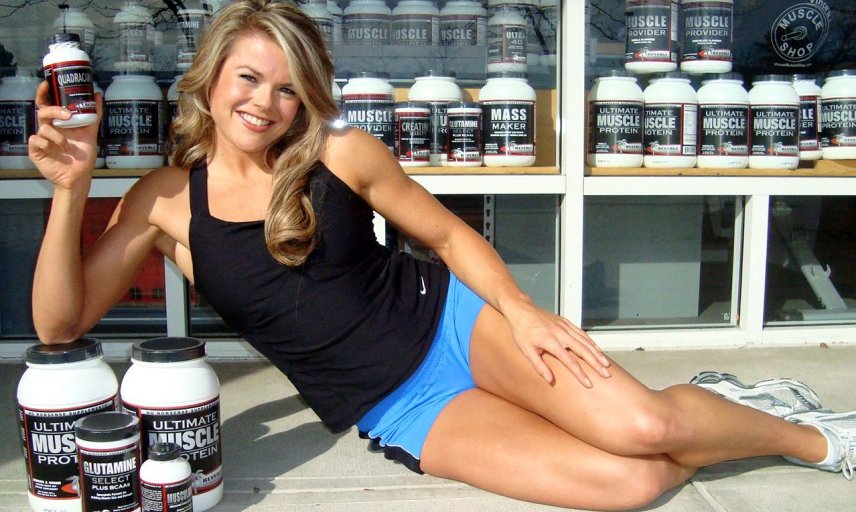Introduction
Strenuous exercise can deplete your body’s glutamine stores, leaving your muscles tired and begging for replenishment. Depletion of glutamine leads to muscle soreness, slow response time, and decreased energy. Such makes the muscle recovery process slow, which can potentially limit one’s gains from their workout. And, long recovery times just won’t cut it, especially for frequent gym goers, bodybuilders, and regular weightlifters.

Glutamine supplements are now a staple for many people as they seek quick muscle recovery, tissue hydration, and reduction in soreness. Some people report that they’ve been having getting exceptional results, including enhanced energy and stamina, from using such products. This supplementation is becoming increasingly popular. It’s believed that it aids in preventing infections after athletic events.
Various fitness experts assert that glutamine supplements promise rewarding health benefits, especially when taken after workouts and along with a proper diet. But, some publications downplay their effectiveness. This piece seeks to clear out all the hype surrounding glutamine supplementation and define whether it’s really fruit-bearing. It focuses on how glutamine works to optimize muscle recovery after raging exercises.
What’s Glutamine?
Glutamine makes up approximately 60% of the human body’s skeletal tissue. It’s involved in multiple metabolic processes. Besides, it’s the main carrier of nitrogen throughout the body. It’s among the 20 non-essential amino acids found naturally in the body. That implies that the human body is capable of producing glutamine from other compounds, whenever necessary.
You can meet your need for glutamine with a healthy, quality protein-rich diet. Foods like fish, beans, dairy products, steak, and poultry would help achieve such a diet. However, the non-essential status of this amino acid doesn’t mean that you should snub the supplement form. It’s the key fuel source for the human immune system. Your body stores much of it in the muscles.
It’s released by the muscles into the bloodstream when indulging oneself in an exercise/activity. High-intensity exercises can deplete your glutamine reserves by a significant level. In turn, that can lead to wasting and breakdown of your muscle tissue. The depletion of this amino acid is mostly dependent on the workout’s intensity. That explains why many fitness experts regard to it as a ‘conditional, non-essential’ amino acid.
Role of Glutamine
This amino acid plays a key role in balancing the acid-base levels in kidneys and supporting one’s immune system. Additionally, it has been proven to aid in muscle recovery and metabolism.
Glutamine isn’t stored in the same manner as carbs (as glycogen) or fat (as adipose) are. Rather, it becomes what’s required. That explains why it’s able to multitask. It’s constantly being used by your body, with its form changing all the time. Your glutamine levels will rise and drop every now and then, in accordance with your body’s demands. But, it’s mostly required to help build and preserve muscles.
Glutamine for Quick Muscle Recovery
This amino acid directly affects the body’s muscle and immune response. For that reason, its depletion after working out can hinder the results you’ll achieve. It has been proven to help optimize muscle recovery in various ways as explained below.
I. Protein Sparing
When readily available, glutamine prevents muscle breakdown. It prevents the body from using muscle tissue as fuel when depleted. Bodybuilders usually refer to this concept as ‘protein sparing’. Glycogen is the human body’s preferred source of energy for exercise. The amino acid stimulates the breakdown of carbohydrates to form glycogen, thus sparing protein.
II. Promote Glycogen Creation in Liver
Upon extreme depletion of glycogen stores, the body might dip into the muscles, seeking energy from protein. In such a case, glutamine will directly increase activity of the enzyme which creates glycogen in liver cells.
III. It’s Vital for Cellular Hydration
This is a process that aids in maintaining cell volume. Glutamine gets into the body cell and draws in water, hence volumizing it. That helps one maintain mass since the breakdown of hydrated cells is less likely to occur. In turn, cellular hydration enhances protein synthesis, which rebuilds and repairs muscle tissues.
IV. Support Immune System
Glutamine is a primary source of fuel for immune system cells. In effect, that can help one build muscle. If the available glutamine in your immune system cells isn’t enough to carry out the necessary repairs, it’ll be sourced from somewhere else.
The body’s glutamine store is basically the muscle. Consequently, your muscle is the first thing that will be broken down when your immune system requires some fuel. Having enough of this amino acid in your immune cells will help you avoid infections which would affect your workout negatively.
Types of Glutamine Supplementation
There are two major types, namely L-glutamine and glutamine peptides. Unlike the peptide form, L-glutamine isn’t bonded to any other amino acid. Many people prefer the peptides as they’re stable and easily assimilated. Various studies, however, demonstrate that most benefits of glutamine supplementation are realized from L-glutamine.
Should You Consider Supplementing with Glutamine?
Glutamine supplements are commonly used by weightlifters and bodybuilders. They are also recommended for elderly people as well as those suffering muscular cramps. This supplementation is helpful in situations of stress, trauma, burns, sepsis, and cancer. It helps one replenish their body’s stores of amino acids used during exercise and everyday activities.
It’s capable of helping you quicken recovery, in addition to retaining muscle mass. The results would even be better if you’re working out really hard. Remember, glutamine is the primary energy source for your immune system. So, if you get some muscle damage during a challenging workout, the immune system cells will need to increase their activity.
Incorporating this amino acid supplement in your post-workout meals will help boost and speed up muscle recovery and repair. It’ll also spare your body the breakdown it’d incur after a hard workout. Ensure that your body gets what it requires to preserve and build muscle.
How Should You Take Glutamine?
The appropriate usage is dependent on various factors, including activity level, overall health, body weight, and diet. But generally, glutamine post workout ought to be taken when the stores are at their lowest.
Most people opt for the powder form as its dosage is more in a single scoop as compared to taking several capsules. Glutamine pills are often large and a bit costlier than powder. Its powder form is tasteless, blending easily in liquid.
You can mix 3-6 grams of the powder with water and consume it together with quality whey protein 30-60 minutes after working out. Adults are advised not to ingest more than 40 grams in one day. Heat destroys glutamine. So, avoid mixing it with hot drinks.
Seek approval from your dietitian or doctor before taking a glutamine supplement, especially if you’ve liver or kidney disease.
Gina Bradwell is a bodybuilder, personal trainer, freelance writer, strength coach and author of “Overweight to competitive bodybuilder.” She has written thousands of articles on anabolic chemistry, dieting and health.
One comment on “Glutamine for Quick Muscle Recovery”
Leave a Reply
You must be logged in to post a comment.
Glutamine is only a non-essential amino acid, ie our body produces from the metabolism of proteins. What will preserve lean mass is a good amount of dietary protein in a general context (the total amount at the end of the day) and heavy training.
What will burn fat is the calorie deficit. It can potentiate by doing a low frequency fasting aerobic and also consuming smaller amounts of carbohydrate. Thermogenics help a little when it’s stagnant. But it is a last resort.
And when I say thermogenics it’s caffeine, yohimbine, ephedrine, clenbuterol. But it is in later cases to finalize the cutting perhaps.